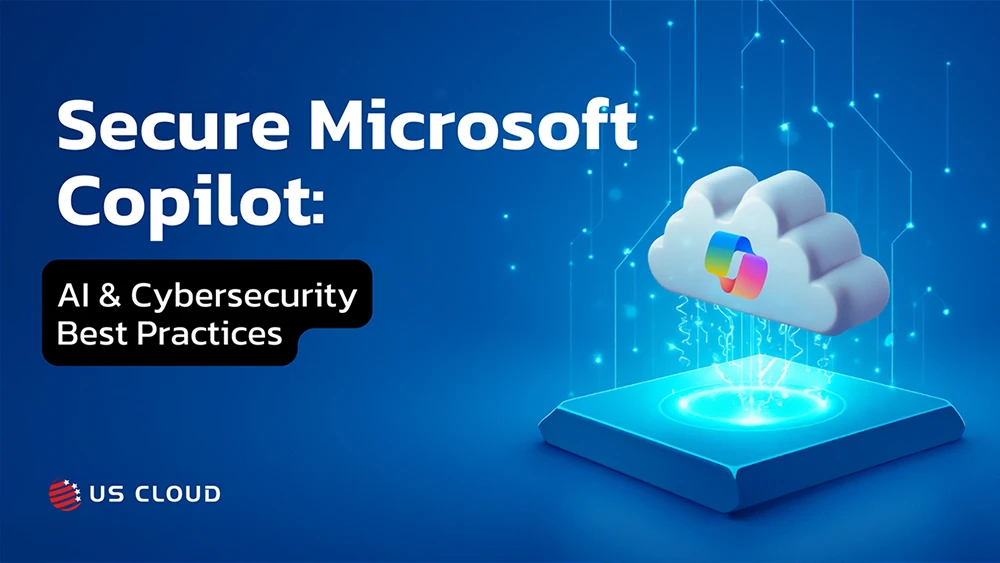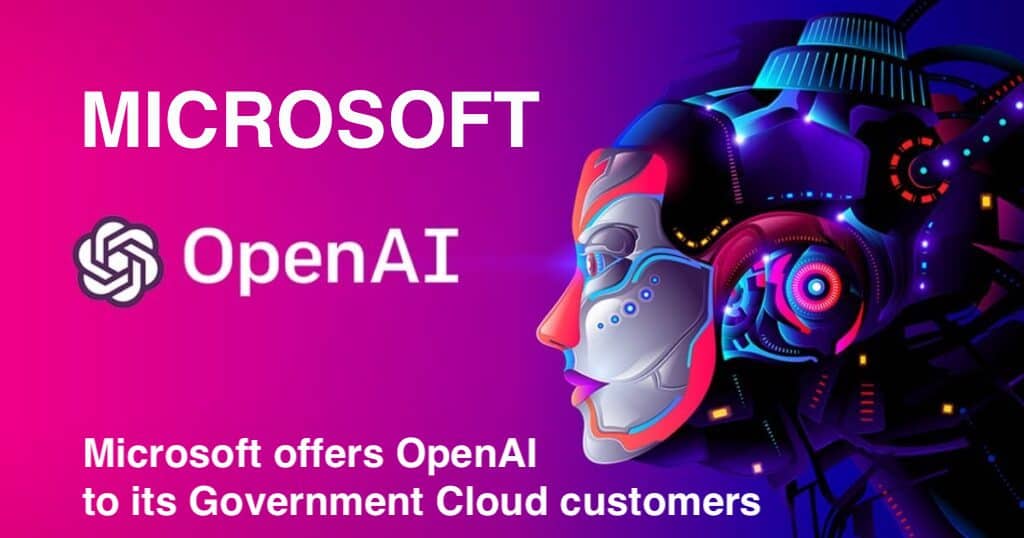
Microsoft Offers OpenAI GPT-3 Model to Government Cloud Customers.

Microsoft Offers OpenAI’s GPT-3 Models to Government Cloud Customers
In today’s world, artificial intelligence (AI) is becoming increasingly prevalent in government operations. From predictive analytics to chatbots, AI has tremendous potential to improve the delivery of vital services. Microsoft recently announced its partnership with OpenAI and the integration of OpenAI’s GPT-3 models with Azure Government Cloud platform. Support is available via the NASA SEWP contract where US Cloud is replacing Microsoft Premier/Unified Support.. As the manufacture of AI chips and use of AI continues to grow, we will see more changes like this across a variety of industries. This could be viewed as an early case and a look into what AI can offer industries long-term.

The Importance of AI in Government Operations
As society embraces the digital transformation, AI has become an integral part of many sectors, government operations included. Governments worldwide are realizing the benefits of using AI to improve service delivery and cloud management. AI can automate repetitive and mundane tasks, which reduces the workload of employees. It can also analyze vast amounts of data and make predictions that can aid in decision-making. Additionally, AI-powered chatbots can improve the interaction between government agencies and citizens, providing around-the-clock customer service.
What is OpenAI's GPT-3 Model?
OpenAI’s GPT-3 (Generative Pre-trained Transformer 3) model is a state-of-the-art language generation model capable of generating human-like text. The model uses deep learning technology and massive amounts of data to generate text that appears to be written by a human.
Benefits of GPT-3 Model
The GPT-3 model has numerous benefits. For one, it has the ability to generate high-quality content with minimal human intervention. This saves time and reduces the need for human resources while also improving operational efficiency. Additionally, the GPT-3 model can be used for a wide range of applications such as chatbots, language translation, and content creation.
Companies such as OpenAI, Reddit, and Mozilla have already used GPT-3 models to develop innovative applications such as a writing assistant, a customer service chatbot, and a content generation tool. These examples highlight just a few of the countless possibilities for GPT-3 models.
How Microsoft is Providing Access to OpenAI's GPT-3 Model
Microsoft, through its partnership with OpenAI, is offering government agencies access to the GPT-3 model via the Azure Government Cloud platform. The platform provides a secure and compliant environment for government agencies to develop and deploy AI applications. Microsoft has also implemented several security measures, including encryption and access controls, to ensure that data within the platform is secure.
Any government agency that handles large amounts of text data can benefit from the GPT-3 model. For instance, agencies responsible for drafting reports or creating content can use the GPT-3 model to improve operational efficiency and reduce costs. With greater means of encryption and access controls comes less compliance risks and less room for human error. While it may take time for the AI to learn and adapt to the environment, the result could have lasting positive effects across the industry.
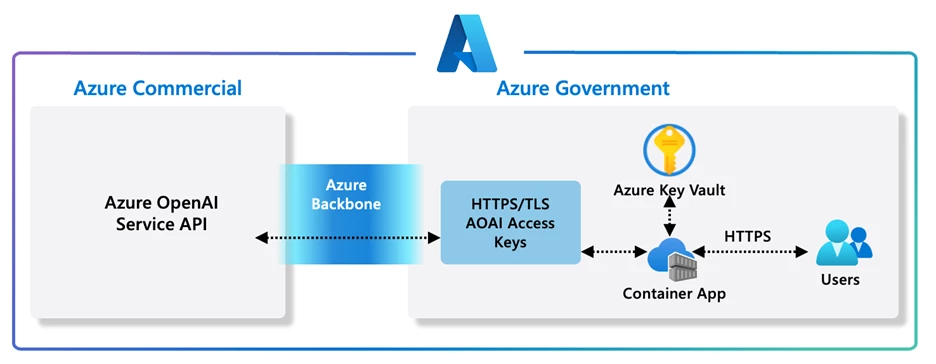
Advantages of Using GPT-3 Model in Government Operations
The GPT-3 model has significant advantages in government operations, such as the ability to generate high-quality content with limited human intervention, improving operational efficiency and productivity. Additionally, the model is consistent in generating content, reducing the risk of human error.
Like any modern technology, the GPT-3 model has limitations and potential ethical considerations. For instance, the model can be used to generate misinformation or biased content if not properly calibrated. Additionally, the model may not be able to generate content under certain topics or circumstances. Both of these issues are things that Microsoft is attempting to solve for with the privatization of OpenAI.
The adoption of AI technology in government operations can lead to several implications, such as improved decision-making processes and increased operational efficiency. However, responsible implementation of AI technology is essential to ensure that the technology is used ethically and for the public good.
The Future of AI
Microsoft’s partnership with OpenAI in integrating GPT-3 models with Azure realizes the potential of AI technology in government operations. The GPT-3 model offers significant benefits for government agencies, such as increased efficiency, improved productivity, and reduced dependence on human resources. While the GPT-3 model has tremendous potential, ethical considerations and continued development and improvement are necessary to ensure its adoption is responsible and ethical. The GPT-3 model could be exactly what some government entities need to increase their efficiency and it’s right around the corner. Keep your eyes peeled for developments to come.
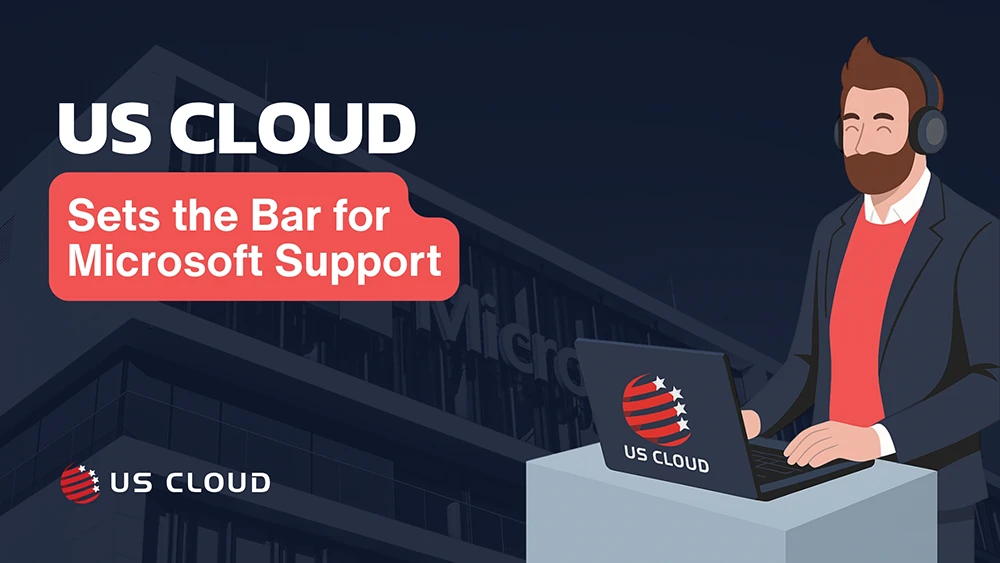
US Cloud Reinforces Industry Standards for Success in Microsoft Support
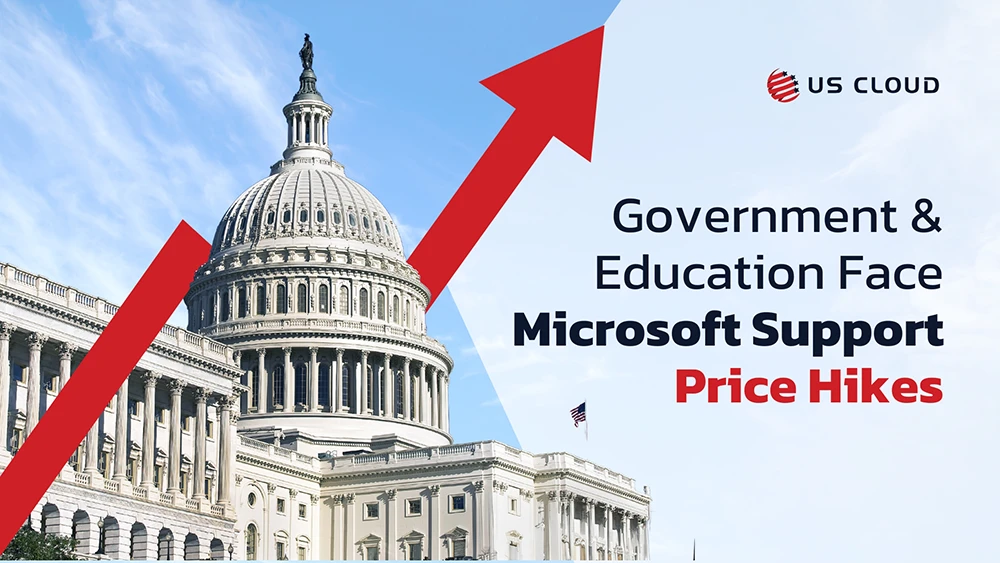
Microsoft Support Price Increase Lifeline: How IT Experts in Government & Education Can Adapt
